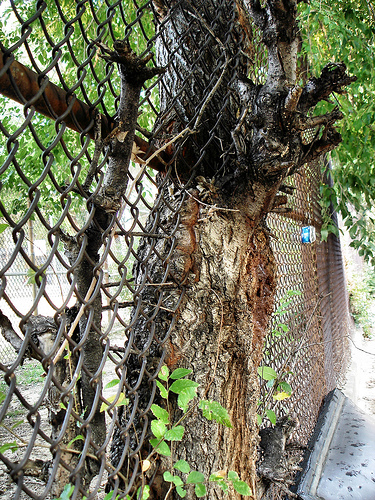One of the reasons the Guardian/Observer online combo is so useful, is that although they’re no longer the crusading radical papers of yore in them we have all the alleged progressives in one place, handy for slinging their ridiculous words back at them.
There’s the Blair apologists like Hutton and Toynbee, the pompous and self-important, like Cohen and Rawnsley, all in one convenient, nausea-inducing package, plus Comment is Free. It has a relatively open comment system, though there have been charges of poilitical moderation made by disgruntled commenters. Despite this admirable openness the papers do have their sacred cows; for instance I see there’s no commenting on Christina Odone.’s religio-elitist twittering. She’s apparerntly sacrosanct, being very well connected in political Catholic circles. It’s like wingnut welfare, only Blairite. (I digress, but there’s always time to poke fun at Our Lady of the Cocktail Parties.)
Anyway, Comment is Free’s comment sections are a boon to Comment of the Day, so cheers for that at least, Guardian/Observer. Oh and the ‘Apprentice’ liveblogging too. That was fun.
Today’s COTD summed up the current state of political affairs so cogently I had to feature it. I also value anything that saves me the trouble of writing – I can never say exactly what I mean and I’m lazy too, so if someone has saved me the trouble, yay go for it.
Falseflagmedia
June 10, 2007 8:17 AM
As cynics might see it, the whole concept of representative democracy is now dead.
By such criticism, It has been subsumed within an economic system of global corporate capitalism, where corporate lobbying, cash for questions, knighthoods for loans and the like have, arguably, turned it into a system of ‘misrepresentative’ democracy.
Politics, acorcordingly, continues to have a national constituency, and must be legitimised by reference to the ‘national interest’, but the corporate forces at work that control the economy are transnational and have no democratic mandate or control.
The alleged potential implications are perhaps legion:
The current political system, of what might be called ‘corporate feudalism’, operates to facilitate access and entry by sympathetic politicans and journalists to the controlling corporate elite, and to deflect attention from the real state of affairs. Politics can become visible crisis micro-(mis)management, whilst structural problems continue unabated.
The gap between spin and substance thus diverges ever more greatly, and people begin to discount official sources of information as propoganda.
Governments must stake a claim to the ‘national interest’ but, arguably, are increasingly driven in private by transnational interests (e.g. oil in Iraq, deindustrialisation, ceding of powers to supranational bodies, increased unregulated immigration, etc;).
By such a view, Governments become part of the ‘self-cannabilising’ state. As they sell off and outsource their own activities to their corporate lobbyists, they have fewer control levers on the economy. Having divested themselves of such tools of intervention, through privatisation, deregulation, central bank independence, etc;, economic management becomes far more difficult. The economy becomes far more volatile because there are far more economic aims to achieve than economic policies to achieve them with (an infraction of Tinbergen’s rule). As long as the global economy is in its growth state, this is sustainable for short-term consumption needs, but in the longer term, problems such as deindustrialisation, the structural balance of payments deficit, the falling savings ratio and the degradation of social capital all eat into the structure and balance of the economy.
By such a view, our system of misrepresentative democracy, as it were, nominally and necessarily excludes any meaningful input on democratic accountability within the workplace. People feel a contradictory conciousness, empowered as consumers or ‘homeowners’ but enslaved as workers in order to be ‘competitive’ under ‘globalisation'(the deindustrialisation of the US and Western Europe).
The cult of personality, arguably, is used as a means of creating the illusion of change in politics. The shift towards the notion of presidential leadership, at the expense of a more cabinet based collegiate approach, is another feature. The creation of ranks of internal spin doctors and advisors is a product of ‘corporate cannibalisation’, where lobbying is internalised within the state itself.
.


